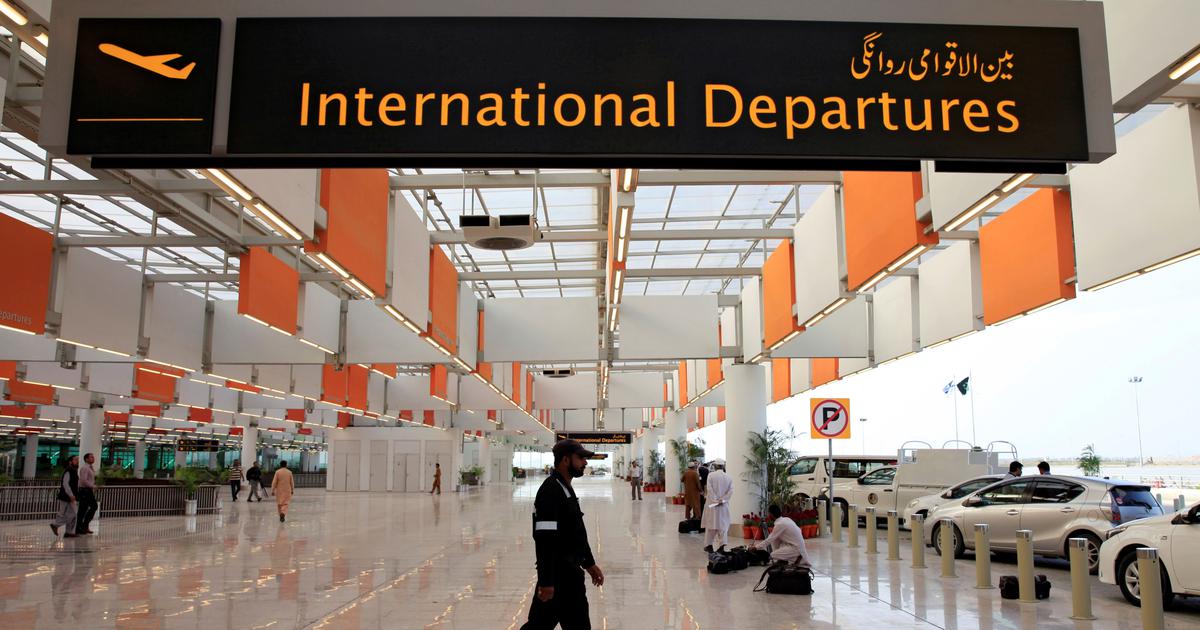
Novelist Mohsin Hamid was surprised to see roughly 30 individuals from Lahore among his fellow passengers on a recent connecting flight from Istanbul to Bologna, a city in northern Italy. These folks were mostly young males who were traveling to Europe ostensibly as laborers.
The Reluctant Fundamentalist and How to Get Filthy Rich in Rising Asia author utilized this short vignette to emphasize his point about the growing number of Pakistanis from all educational backgrounds travelling abroad in search of employment.
In a podcast interview with Ali Khan, dean of the Mushtaq Ahmad Gurmani School for Humanities and Social Sciences at the Lahore University of Management Sciences, hosted by the Consortium for Development Policy Research, Hamid claimed that the most recent wave of emigration is being driven by a “incredible level of inflation” and uncertainty on the political and economic fronts.
“The rupee has plummeted to record lows… Even the most elite members of society are not immune to the unpredictability and predatoriness of the system, he said.
Khan concurred with him, pointing out that the economic crisis has worsened “in last six months” and that people are leaving the country at a rate that hasn’t been witnessed since 1971, the year in which a full-fledged war resulted in the secession of Pakistan’s eastern region.
Up 189% from the previous year, the Bureau of Emigration and Overseas Employment reported that 8,32,339 Pakistanis found work overseas in 2022. In the first five months of 2023, 3,15,787 Pakistanis left the country.
Hamid asserts that Pakistan has been “shedding” intelligent, highly educated individuals with “intellectual capital” for a considerable amount of time. However, people with capital in the traditional sense, that is, money that generates a profit from investments made locally, have believed up until recently that their family-run businesses provide a higher standard of living in Pakistan than work in a foreign market.
Economic capital owners seem to be quite uneasy and are thinking about leaving. That is unique to some degree, he said, adding that the present fear among the wealthy is a once-in-a-generation occurrence. It’s a depressing sign.
He said that “wild uncertainty” in the political and economic spheres, coupled with a national inability to industrialize, had increased the need among young people to leave the country.
What would occur if you were in a vehicle accident with the wrong person? if you have the incorrect last name or religion? “Pakistan is a state that is extremely predatory… to the point where no one has protection,” he added, saying that even the somewhat “well-connected” elite is now finding it difficult to negotiate the predatory state.
Independent economist Yousuf M. Farooq stated in an interview with Dawn on Tuesday that the proportion of educated professionals leaving the country—including engineers, physicians, accountants, and managers—rose from 1.2% in 2011 to 6.5% in 2023.
According to him, the fact that it takes time for income in metropolitan areas to recover after a devaluation is a major factor in the dramatic increase in emigration among the educated.
Second, he said, educated professionals have more access to resources than their unskilled and semiskilled competitors, which enables them to obtain job abroad more quickly.








